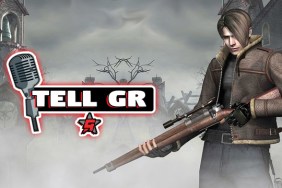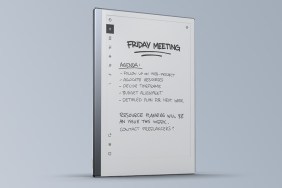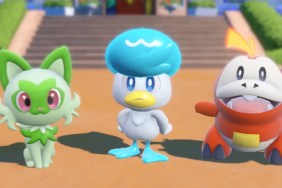Who was that masked man?
Well, another Halloween has come and gone. It’s just not the same when you’re older. Back in the day, I remember dressing up as Link from the original Legend of Zelda. Little green tunic, dad’s boots and a cardboard sword. Damn – what a little video game geek I was! (Am, Johnny. Am. – Ed.)
Anyway, I couldn’t wear the pointy green hat because Chinese people have this thing against green hats. Supposedly, parading around wearing a green hat means your wife is cheating on you. Swear to god…just a little cultural 411. I don’t know how this rule or the social implications apply to a grade-schooler, but the green hat was right out.
Halloween as Link was cool, since I just ran around and stabbed monsters (read: other kids in costumes). Plus there was candy involved, which explains the running. But once I took that costume off, I was back to plain ol’ Johnny. There’s just something enticing about putting on a mask and becoming that which you wear.
The Legend of Zelda: Majora’s Mask takes this concept and builds an entire game around it. And I’ve got to admit, playing dress-up was rarely this fun.
Shortly after the events that transpired in Ocarina of Time, Link rides off from the land of Hyrule in search of adventure. In the forests of Termina, Link is attacked by Skull Kid. Skull Kid nabs Link’s ocarina and runs off into the forest.
Skull Kid is no mere mischievous imp. He is wearing the stolen, sacred Mask of Majora. Unbeknownst to Skull Kid, this mask has been filled to the brim with evil energy and powers, sure to bring about the worst in anyone who wears it. In effect, the mask has transformed a Dennis the Menace scamp into an apocalyptic harbinger. Now in three days the moon will fall and destroy the world…unless you have the balls to stop it.
Majora’s Mask gives you 72 hours in Zelda time to save the land. Once you retrieve your ocarina, you can travel back to the beginning of the first day any time you’d like. While the game world is identical each time around, you get to keep some of your stuff…and therein lies the puzzle. It’s basically the movie Run Lola, Run without the bad ass techno music.
The time travel really works when you begin to understand how everyone is following the exact same schedule within those three days. For example, you meet a depressed girl on the third day that doesn’t really want to talk to you. If there’s some way to get to that person on the first day, then maybe you can find out what made her depressed. Ever watch that movie Groundhog’s Day? Well, throw in some weapons, monsters, and the impending doom of a falling moon, and you’ve got the right idea.
Majora’s Mask is a relatively linear RPG and follows the mold of its predecessor. The land of Hyrule is still filled with all manner of creature and townsfolk, some of which you’ll be familiar with.
 You begin the game under a ‘Deku Scrub’ curse, trapping Link into the body of a sad-eyed Deku Scrub. Once you lift the curse, you are left with a Deku mask. Put the Deku mask on, and you become a Deku. Take it off, and you are back to Link.
You begin the game under a ‘Deku Scrub’ curse, trapping Link into the body of a sad-eyed Deku Scrub. Once you lift the curse, you are left with a Deku mask. Put the Deku mask on, and you become a Deku. Take it off, and you are back to Link.
There’s also a Goron mask and a Zora mask endowing you with all the powers of those species. Despite the fact that the game touts 26 masks, the great majority of them work like the masks in the previous Zelda – they affect small events and the way people respond to you, but they don’t transform Link.
The mask concept results in a gameplay mix somewhere between Zelda and Banjo Kazooie. Since some masks turn you into different creatures, the play mechanics vary. On the one hand, you get all the positives of new styles of control and ways to interact with your environment. But you’ll also get some frustrations. Floating through the air on little flowers and rolling across ramps Goron-style can get annoying and redundant.
Nonetheless, the solid swordplay and targeting system still lie intact. Sword fighting feels more honed and developed. Targeting works like before, where you can set the camera to be locked and centered on an opponent, which allows you to concentrate on the battle. Occasionally objects can briefly get in the way of the camera. The solution is simply moving to get the object out of the way, but I would rather see transparency.
I appreciate how this game doesn’t feel like Ocarina Redux, but instead picks up right where things left off. The more basic weapons are earned closer to the beginning, instead of compelling the player to play through some huge dungeon just for some Bombchus or a longer Hookshot. While the powered arrows were more of an afterthought in the original, they become much more important this time around. 
For that matter, the level of difficulty has been upped a notch from before. There’s much less handholding as you try to find the entranceway to the dungeons, each of which is huge and smartly designed.
But sometimes the game hoists “retrieval” and “prove yourself” missions on you, like making you find five kids hiding around a town. The world’s gonna end in 3 days and you wanna play hide and seek? How about more screaming people running around outside when the moon is minutes from falling?
Take a good long look at Majora’s Mask, because this is graphically the best of what the N64 has to offer. The engine is essentially unchanged from the first game, only sharper and with more detail. The biggest improvement is that towns and building interiors are now actually mapped out, instead of the low-resolution wrap around from before. It’s certainly a beautiful game.
However, when you compare this one to what’s being done nowadays on other systems, it looks a little muddled. The N64 just cannot keep up with the Dreamcast and PS2, and you can’t help but wonder what this game would have looked like on a burlier console. I should mention that the game requires the N64 RAM expansion pak to work, but most of you probably already have it.
In a wise move, they’ve brought back the overworld music from the previous Zelda and it still sounds great. Some of the new music doesn’t work as well, however. Just think about how much better this game could have been with full voice instead of grunting sounds from everyone.
Ocarina of Time was a legendary game. It took a wildly successful long-running series and successfully brought it into the third dimension, creating new play concepts and paradigms used in many games today. At the same time, it really captured the player and was fun to play. Majora’s Mask does not follow suit in terms of innovation, but is still a worthy successor. The two new additions of time and masks work well. It takes a little longer to get into this Zelda, but there are moments when the game really hits you with all its intricacies and mysteries, and that makes it all worthwhile.

-
Time and Mask concepts
-
Good hack and slash fun
-
Harder difficulty and dungeons
-
Intriguing story
-
Worthy successor
-
Average sound
-
Occasionally frustrating
-
Some irritating missions









